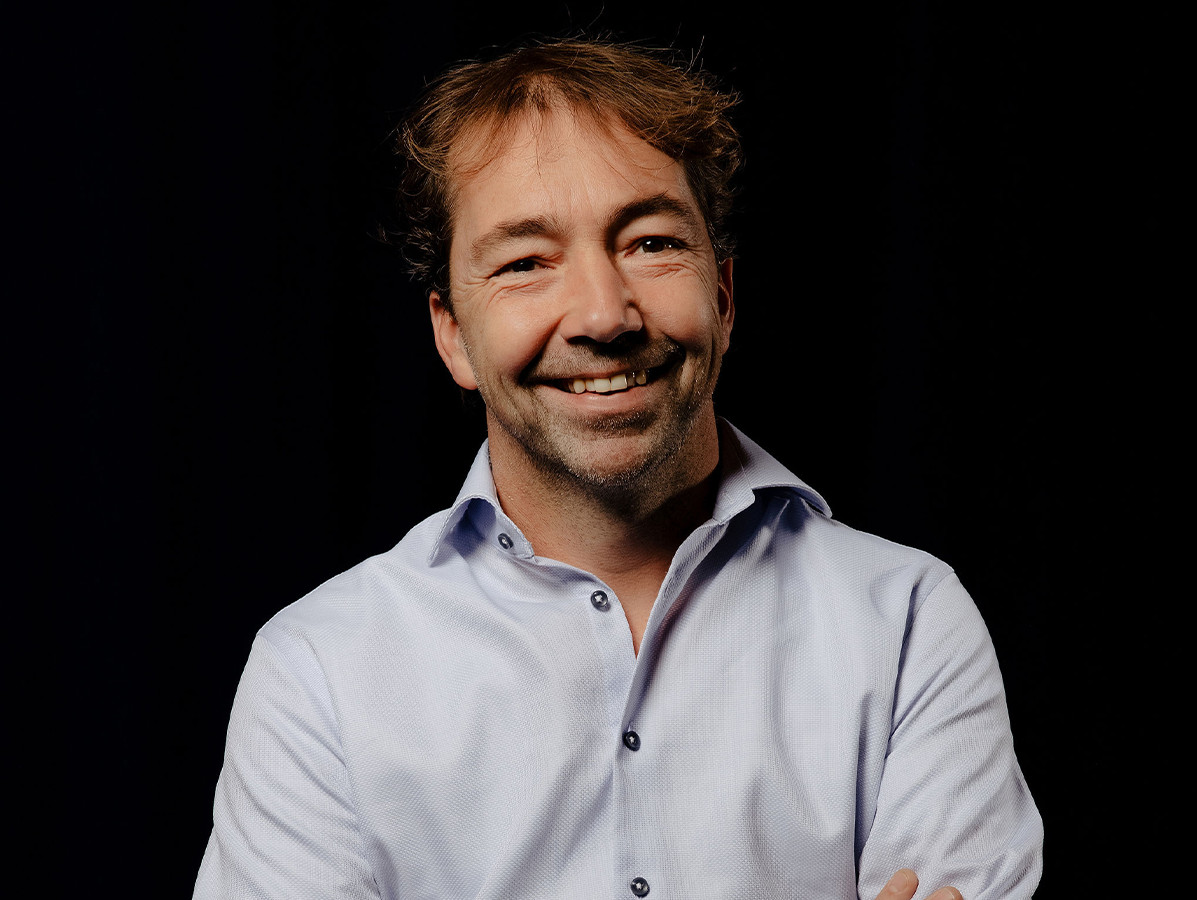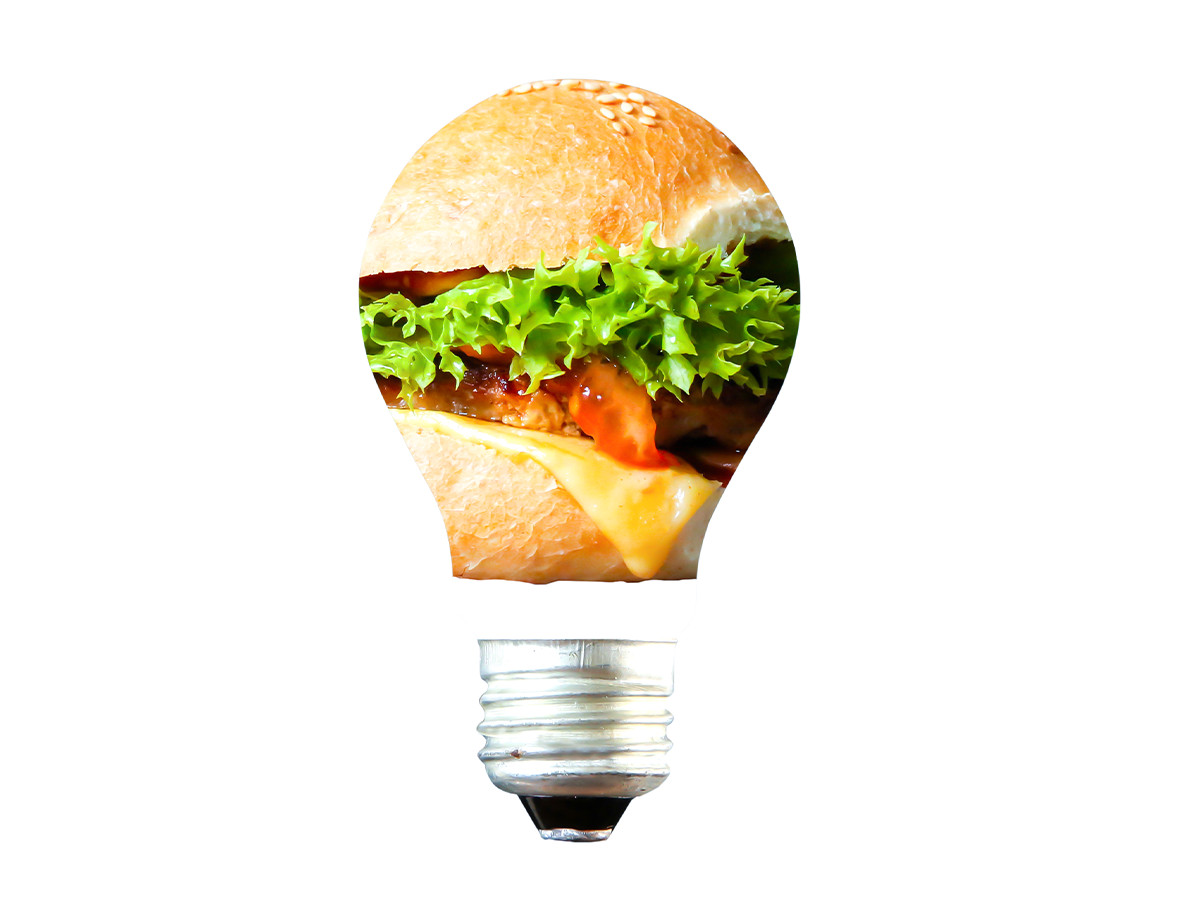
The transition to more sustainable and healthier food, to minimize climate change and pressure on healthcare, must accelerate. That's what the founders of the new platform Brave New Food believe. They want to boost that transition: by linking innovative solutions directly to concrete challenges within the food industry. An interview with Jesse 't Lam, one of the co-founders, on the how and why.
"Food manufacturers don't always know how to find the way to innovative solutions for the big challenges of our time," says Jesse 't Lam. "At the same time, it's hard for startups - with good ideas, innovations and potential solutions to those problems - to grow without the right network or investment. We are bringing both parties together through our platform Brave New Food."
'You end up in a pool of companies that embrace innovation and change and want to join forces'
There are now 16 companies from the food industry associated with this new, European-oriented, innovation platform. Among them are big names such as Kraft Heinz, Superunie, Smurfit Kappa, The Greenery and Vivera. In the course of this year this number should rise to at least 50, is the ambition of the four founders: Joost Dekkers, Bas Allart, Vincent van Gorkom and Jesse 't Lam. Who are these game changers? And how are they going to achieve their ambitions; and what is needed to do so? Jesse 't Lam talks about his passion, about innovation and the dynamics of connecting.
"Joost Dekkers has been involved in open innovation projects for companies, non-profit organizations and semi-public institutions for over thirteen years. He is the initiator of the open innovation platform StartHubs (www.starthubs.co), among others, and in this capacity has a great deal of experience in organizing online challenges. He uses these challenges to expose market issues to his network of innovative thinkers and doers, and he reports the creative out-of-the box ideas back to the organizations. Bas Allart, like Joost, works in the field of innovation support. He set up the successful incubator UtrechtInc (www.utrechtinc.nl) as well as the Hortiheroes platform for innovation in the food and flower industry (hortiheroes.com). Vincent van Gorkom and I have almost identical resumes; we both originate from the food industry."
Jesse explains that after college, about twenty years ago, he started working at a small family business in the snack industry. As co-owner, he helped it grow into a large company until they sold it to Intersnack. Then he and two partners stepped into a new challenge, this time in a company that made organic potato chips and later on vegetable chips. That company grew from ten to one hundred and ten employees in five years. He sold it to Campell Soups. In both companies, product development, clean labeling and producing for private labels throughout Europe played a major role.

from left to right: Vincent van Gorkom, Jesse ’t Lam, Joost Dekkers, Bas Allart
"To be honest, about five years ago I didn't really realize the magnitude of the problems. I came from a fairly straightforward part of the food industry and was not at all concerned with issues like sustainability, food waste or where proteins come from. In the organic sector, which I rolled into partly by chance and partly by interest, the awareness of healthy food and a healthy planet was much greater. As I learned more about it and learned how incredible environmental and climate gains can be made if steps are taken, I also discovered how many wonderful initiatives there are. Initiatives that do not always get off the ground, due to a lack of knowledge, money or a network. I noticed that I wanted to put my energy into that and that is what gives me energy. That is precisely the motivation that binds the four of us together; each from his own perspective."
"We have set out three challenges for this goal starting in November 2020, focusing on three topical themes: Plant-based alternatives, Food waste and Sustainable packaging. Innovative, often young, companies can pitch their solutions until February 16. A growing group of affiliated corporates and investors review the pitches. They invite the most interesting innovators for an introductory meeting at our matchmaking event, March 25. A number of partners are willing to invest heavily in promising startups. Among them is the regional development company Horizon. Thus we offer startups and scale-ups access to new markets, networks, expertise and investment opportunities of up to 1 million euros."
"The R&D departments of many companies are primarily set up to innovate and improve their own products, not to come up with solutions for more general themes, such as more sustainable packaging or combating food waste. With Joost's knowledge and expertise we have access to much more unusual solutions from all over Europe. Moreover, all links in the chain are included in our inclusive approach, from crop to consumer product and from logistics to packaging. Our recruitment, in other words the method we use to look for innovations, goes far beyond what is traditionally done in the food industry."
"On top of that, as a partner you end up in a pool of companies that embrace innovation and change, companies that see the added value of working together and are willing to join forces; also in accelerating the transition to more sustainable and healthier food. The urgency that something has to change is increasingly widespread. You recognize that in new collaborations, for example between Westland cheese and Those Vegan Cowboys, or between Willicroft and Van der Sterren."

©Only_NewPhoto/shutterstock.com
"A fair question, but I think that fear is unjustified. Primarily because some startups' main ambition is to introduce their product to, for example, food service, the hospitality industry or out-of-home markets. Through our platform they have the opportunity to bring it to the attention of partners such as Sligro and Superunie."
"Furthermore, it is of course up to the startup to think carefully about exactly what you want and how you formulate the pitch that will be shared in the pool. That's no different with us than in any other commercial process. We can guide promising startups in this process, as we do for example with Karma Kebab. It is the first concrete example of a company that has been embraced by BNF. It makes 100% vegetable-based shoarma based on grains and vegetables from Dutch soil. Conceived as a gimmick at Lowlands two years ago and now all set for the next phase of growth. BNF provided growth capital and is thinking along with the company on production, organisation and the possibilities for exporting to Germany. We have made many mistakes ourselves. Hopefully we can prevent startups from making the same ones!"
Jesse laughs. "I'm not going to lecture on what startups are doing 'wrong' right now. But if I apply this to ourselves and our own experiences, the most important one is: if you assume that something will succeed in two years, that X costs money and Y costs energy, it is advisable to multiply everything by two. Apparently it is embedded in many forecasts, ánd characters, to assess expectations more positively. Or, in other words: practice is by definition more unmanageable than you think."
"Another pitfall is that startups often have insufficient knowledge of the market they are entering. One day you step out of your lab environment and say, 'It's done!' But you haven't yet properly tested whether what you're offering is unique enough, you don't have a clear picture of who else is working on a similar concept, you don't have a basis for realistic pricing. In my opinion, there cannot be enough time spent on such a market test. Tip: make sure it is sufficiently thorough before you enter the market."
"As a startup, you make big fundamental and strategic choices at an early stage. These prove difficult to reverse at a later stage. Not every startup is sufficiently aware of this. For example, if you step into retail with your brand, then you can't serve other channels as easily afterwards. Many startups can't oversee the consequences of all those - sometimes seemingly small decisions you make along the way."
"The nature of the problems we are looking for ensures that people have an open mind already, we believe. By connecting different sectors and fields of work in all transparency, you will arrive at new solutions faster; that is the common goal. That's why we don't want to work with just a few exclusive partners, but rather with many inclusive ones. We hope that in the course of 2021 we will be able to show, on the basis of actual showcases, that our platform has led to fantastic improvements, collaborations and the introduction of sustainable technologies. That companies have joined forces that just yesterday you thought were totally out of the question; but have started doing so here, now.
"Our goal is to have at least 50 partners connected to us next year. And yes, that will include companies that see each other as competitors. We don't expect that to stand in the way of innovation, because they will look for common ground. And yes, that takes guts. In short: be brave. Innovate!"
Source: Vakblad Voedingsindustrie 2021